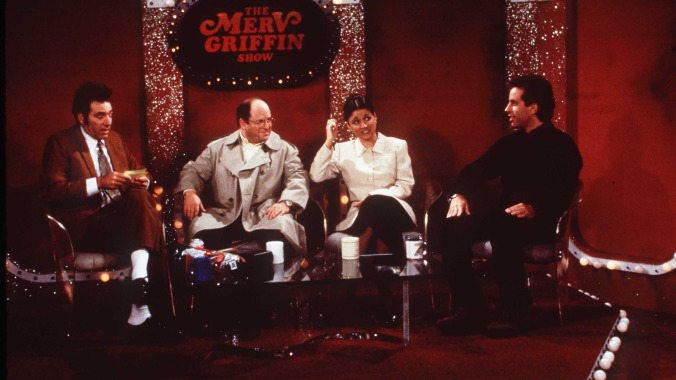As legacy media conglomerates enter the streaming fray, series of Seinfeld’s popularity and esteem have become increasingly coveted; Hulu’s $180 million bid from 2015 is a far cry from the reported $500 million NBCUniversal paid to bring The Office home, or the $425 million that got Friends for HBO Max. (The Times report does not disclose how much Netflix paid for Seinfeld.) And having a Seinfeld-sized hit in the library could have an impact on whether a subscriber sticks with a streamer, or if they even decide to become a subscriber in the first place: This past weekend saw reports of The Simpsons being one of the most-anticipated offerings of Disney+’s November launch, and it was only a few months back that the results of a Hollywood Reporter/Morning Consult poll suggested that 30% of subscribers 18 to 29 years old would kick Netflix to the curb following the departures of Friends and The Office. Perhaps the youths can be persuaded to stick around by another NBC Thursday-night classic, one whose laughs are more rigorously structured but lacking in the Central Perk and Dunder Mifflin crowd’s warm fuzzies? And then maybe they’ll watch the star of that show driving cars and drinking coffee with other comedians?
Whichever way things go, we all know who’s truly losing out here: Poor Crackle, which couldn’t take advantage of the prevailing trends in streaming-IP hoarding in order to add Sony-owned Seinfeld to the lineup of what will soon be known as Crackle Plus. Of course, that rebranding is a joint venture with Chicken Soup For The Soul Entertainment, and we all know how Seinfeld feels about such Chicken Soup hallmarks as “hugging” and “learning”—not to mention soup, whether it qualifies as a meal, and the type of people who serve it.

 Keep scrolling for more great stories.
Keep scrolling for more great stories.
